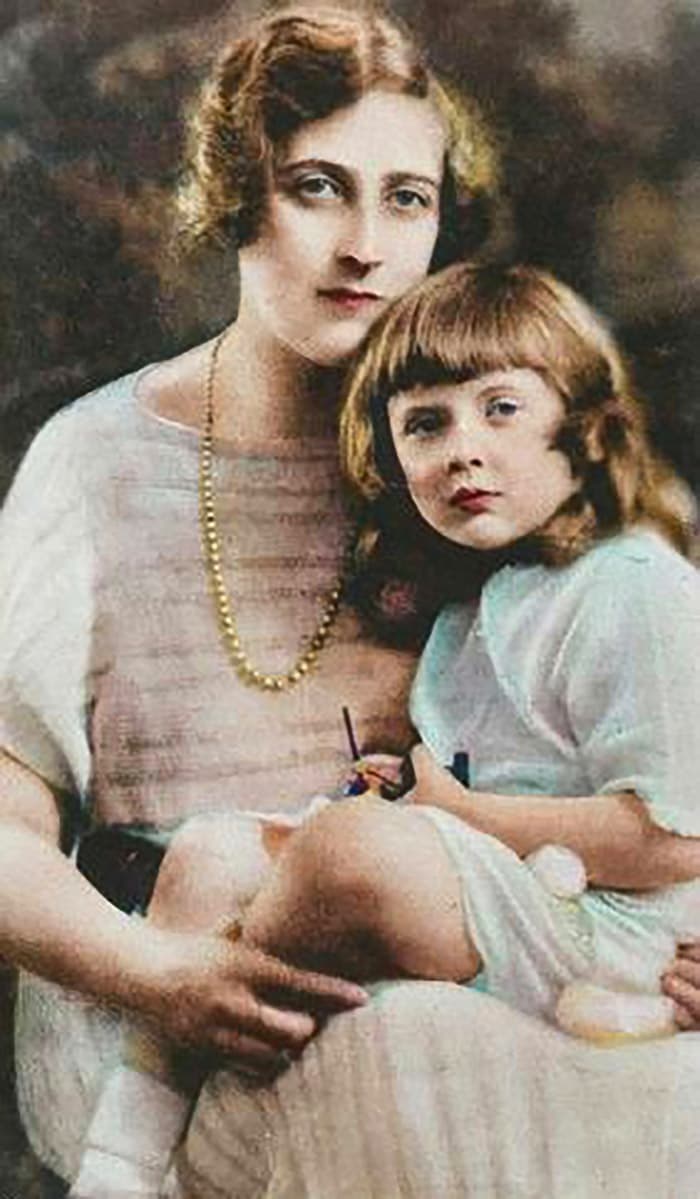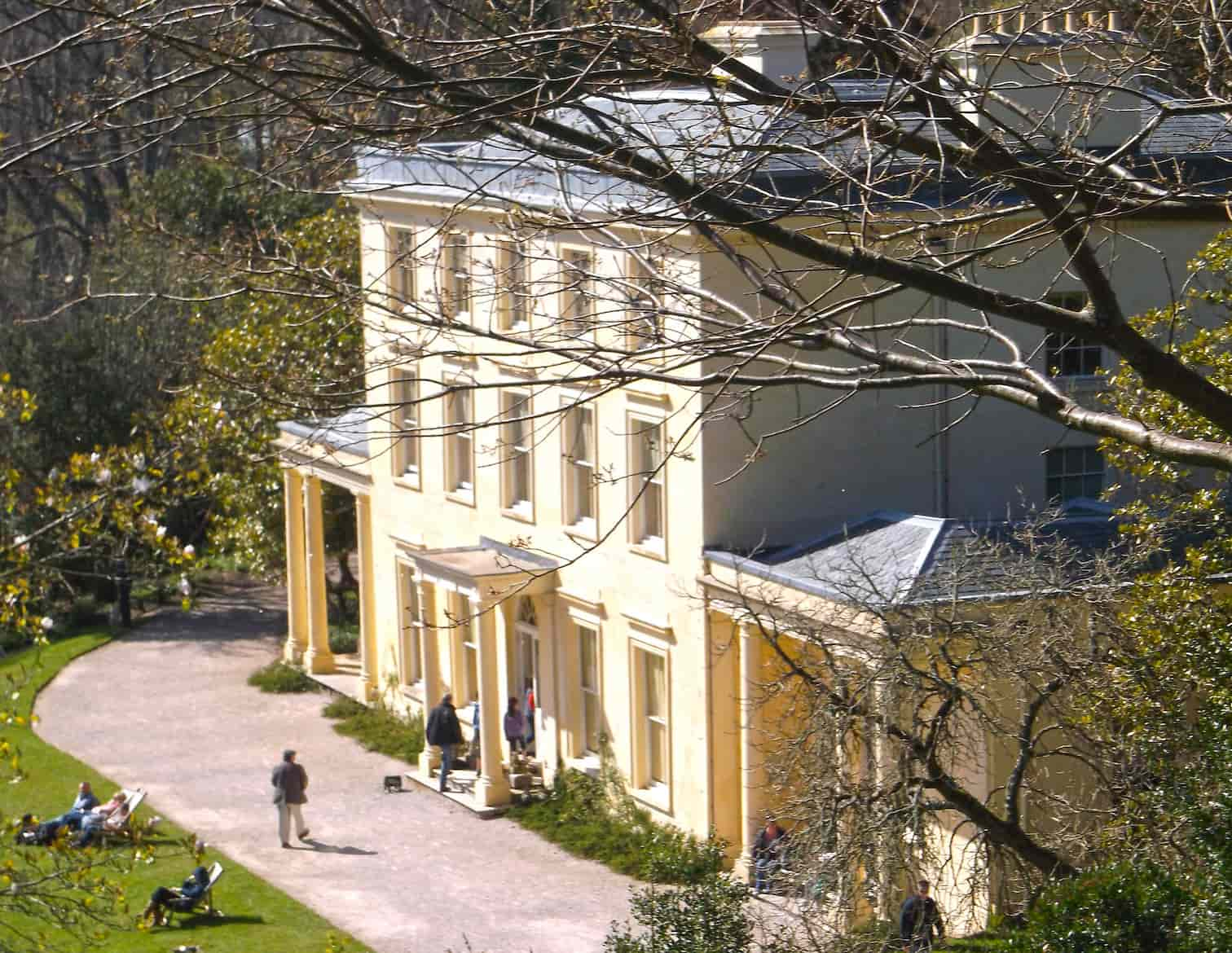- Rosalind Hicks preserved Agatha Christie’s literary legacy diligently.
- She defended her mother’s reputation against misrepresentations and intrusions.
- Her efforts contributed to the success of iconic TV adaptations.
- Rosalind’s legacy lives on through her son today, Mathew Prichard, a dedicated philanthropist.
Rosalind Margaret Clarissa Hicks, Agatha Christie’s only child, was born on August 5, 1919, and passed away on October 28, 2004. When Rosalind’s mother passed away in 1976, she received a sizable chunk of the inheritance, including 36 percent of Agatha Christie Limited’s stock. Christie’s autobiography was released in 1977, and she helped write it with her second husband, the lawyer Anthony Hicks. In addition to helping Christie write, Rosalind analyzed and organized the notes that were important in the development of Christie’s legacy. She tried to stop the release of new materials that would have twisted her mother’s original works or that would have harmed her legacy. Her son Mathew Prichard and eventually her grandson James Prichard took the helm of ACL when she passed away.
Rosalind Hicks’ Early Years
It was at Ashfield, a coastal resort town near Torquay, Devon, that Rosalind Margaret Clarissa Christie was born on August 5th, 1919. Her maternal grandmother raised her. Agatha’s parents, Frederick (1846-1901) and Clarisa Boehmer (1854-1926), had her there in 1890. Colonel Archibald Christie (1889-1962), Rosalind’s late father, served as a military pilot during World War I. Rosalind’s parents married in late 1914, and when Rosalind was seven, the family relocated to Sunningdale and into a mansion they called “Styles,” after Agatha’s first mystery book, “The Mysterious Affair at Styles.”1
Rosalind’s grandma Clarissa died away on April 5, 1926, a loss that hit Agatha pretty hard.2 Archibald, who worked in London City, began dating Nancy Neele, who worked in an office nearby, about this time. On Rosalind’s birthday in August 1926, he told Agatha he had fallen in love with someone else.

After months of trying to patch things up, the couple finally gave up. Tension and arguments grew between them. Agatha departed from “Styles” for eleven days in December 1926, to an unknown destination. A controversial divorce case developed shortly after that. Agatha met archeologist Max Mallowan in 1928 and lived the rest of her life with him beginning in 1930.
She kept the surname she had inherited from her previous marriage. Agatha seemed to feel remorse for Rosalind, who had blamed her mother for the family’s dysfunction. However, the latter has always stuck to the “official” explanation for her mother’s absence from the Styles house. As her daughter describes it, Agatha “was ill throughout 1926 and, at some traumatic moment on the night of December 3-4, lost her memory.” Christie and her ex-husband kept in touch seldom, mostly via letters. After Nancy Neele passed away in 1956, Rosalind covertly contacted her father and even met him.
Her Education and a New Life at Greenway Estate
After everything that happened, Agatha, a world traveler who supported herself by writing, made the difficult decision to enroll her daughter in a prestigious private school. Before attending Benenden, Rosalind attended Caledonian, both British boarding institutions.
It is believed that Christie’s boarding school in “Cat Among the Pigeons” (1959) was inspired by her time spent there. Rosalind Hicks attended two Swiss boarding schools for her formal education and then moved to Paris and Munich, France, and Germany, respectively, to study the languages. Greenway Estate in Torquay, which her mother acquired in 1938 and refurbished the following year, became a regular place of residence for Rosalind Hicks as she became older.
Throughout her memoirs, the author made references to her daughter. She said that the primary trait of “Rosie” consisted of “irrepressible activity”: “She was the kind of fidgeter who do not sit still for a minute and, returning after a long and tiring picnic, cheerfully asked: ‘Dinner is still half an hour away – what are we going to do?'”3
The Fate of Rosalind’s Two Marriages
Rosalind Hicks married Major Hubert de Burr Prichard (1907-1944), an army officer from a privileged family, at the start of World War II. Mathew was born to them on September 21st, 1943. Sadly, the news that Hubert had been killed in action in the Battle of Normandy in 1944 dampened the celebrations of his loved ones. Five years later, she married lawyer Anthony Arthur Hicks (1916-2005) in 1949 and remained married to him until her death in 2004 and Anthony died a year later.
The title of Agatha Christie’s biggest hit “The Mousetrap” was suggested by Rosalind’s husband Anthony. Recalling the experience, Agatha said, “When it became clear that the original title, The Three Blind Mice, could not be used because there was already a play with that title, we all began to think of a new one. Anthony came in and immediately said: “The Mousetrap” – and we immediately agreed.”
Since Agatha did not anticipate the play’s popularity, she did not consider the possibility that Anthony might want a portion of the profits.
Agatha Christie’s Will

Agatha gave her daughter the Greenway Estate in 1959. The writer’s will, which was disclosed after her death in 1976, left the bulk of her estate to her only children Rosalind, and Agatha’s husband Max Mallowan. The couple also split a sum of £107,000 dedicated by Agatha (£950,000 or $1.15 million in today’s value), although Agatha Christie’s total earnings were more than $100 million in today’s money.
In addition, Rosalind received a sizeable inheritance from her mother’s company: 36 percent of the stock in Agatha Christie Limited. This corporation owns the commercial and copyright rights to all of Christie’s works, including those based on her original novels and those adapted for television, cinema, radio, and video games. Novels like “Sleeping Murder” and “Curtain: Poirot’s Last Case” were written in the 1930s and 1940s to wrap up the storylines of her most well-known investigators, Miss Marple and Hercule Poirot. The author has given her husband and daughter the rights to reproduce these works.
Agatha originally decided that “Curtain” would belong to Max and “Sleeping Murder” would go to Rosalind, but she subsequently reversed her mind. These books were published in 1975 and 1976 from original manuscripts that were transported to New York for safekeeping.
Rosalind Worked on Christie’s Autobiography
Christie’s memoirs saw help from the Hicks couple. It was published in 1977, almost two years after the author had passed away. The author’s own words provide a wealth of information about Agatha Christie and her approach to writing. They have become essential tools for any scholar or biographer interested in Christie’s writings.
Christie’s personal notes were also analyzed and organized by Rosalind. They are seen as essential to understanding the development of the storylines in her novels. Rosalind decided on the random and non-chronological order4 in which Agatha’s 73 drafts would be numbered. Agatha and Rosalind’s notebooks make up the bulk of this collection.
Rosalind Hicks preserved her mother’s inheritance with all her might. According to American biographer Richard Hack, “Rosalind zealously watched to ensure that the reputation of Agatha Christie did not spoil poor-quality editions and movies”
Rosalind’s Impact on Her Mother’s Legacy
Even in her latter days, Rosalind defended her mother’s legacy, whether it be her life or her work, with an intensity and vigor that belied her late age. She wrote articles in the newspapers with this aim, and she made an effort to have an impact on Agatha Christie Limited in any way possible. If any of her mother’s letters or notebooks contained sensitive information, she hid them away. Due to Rosalind’s fierce opposition, her mother’s approved biography was finally published by Janet Morgan in 1984. Laura Thompson, yet another biographer, mentioned Rosalind and her son Mathew in her released work.
She also fought against intrusions into her mother’s private life and adaptations that misrepresented her spirit:
— For example, Rosalind disapproved of the Agatha Christie-themed book “Agatha” (1978)5 by journalist and author Kathleen Tynan. The book dealt with the disappearance of Agatha Christie.
The 1979 British drama thriller “Agatha” was the cinematic adaptation of the same book with the same plot. Directed by British filmmaker Michael Apted, Vanessa Redgrave starred as Agatha Christie, Timothy Dalton as Archibald Christie, and Dustin Hoffman as Wally Stanton.
In the plot, Christie is unable to accept the fact that her husband has chosen his mistress over her. She wants to commit suicide to set out to blame her competitor for it. But at the last minute, Agatha changes her mind and accepts the divorce.
In The Times in 1977, Rosalind stated that the movie, made without consultation with anyone from her parents’ families, was contrary to their wishes and would cause them great distress.
Rosalind and the Agatha Christie Foundation both sued to prevent the film’s release in 1979, but the court ruled against them. The reason for this was likely the lack of protest by the public against the film’s distribution; in other words, people didn’t care how accurate the movie would be.
However, she did greenlight certain shows for the little screen. The most famous of them are “Agatha Christie’s Poirot” (1989–2013), with David Suchet as the legendary Hercule Poirot, and “Miss Marple” (1984–1992), starring Joan Hickson as the title character. Their widespread success may be partly attributed to the fact that Christie’s daughter helped create them.
The “Agatha Christie Society,” founded by Rosalind in 1993, aims to preserve the author’s work and name. Rosalind established it, and Joan Hickson and David Suchet served as co-chairs. After extensive renovations were completed and it was opened to the public in 2009, Greenway Estate was donated to the National Trust by Rosalind and Mathew in the early 2000s.
Rosalind Hicks’ Death
In 2004, before her death, Rosalind Hicks had an estimated net worth of $1 billion or £600 million. Most of this net worth was believed to be the value of her Greenway Estate. Mathew Prichard was the primary heir of her estate, and he also controlled the rights to Christie’s groundbreaking play, The Mousetrap.
Agatha Christie Limited was first run by Rosalind’s son Mathew, and then by James Prichard, Rosalind’s grandson. Mathew reflected on his mother’s “enthusiasm, devotion, and understanding” in promoting Agatha Christie’s works, saying, “The continued popularity and success of Agatha Christie’s books in recent years is largely the result of my mother’s hard work.”
Since their marriage in 1949, Rosalind Hicks and her husband Anthony Arthur Hicks were longtime residents of the Greenway Estate until Rosalind’s death on October 28, 2004, at the age of 85, in Torbay. Her husband passed just six months after her. Rosalind only left behind a single child, Mathew Prichard (b. 1943), who has been working as a philanthropist to this day.
- Agatha Christie: An English Mystery, 2007, p. 228, Laura Thompson ↩︎
- Agatha Christie: An English Mystery, 2007, p. 217, Laura Thompson. ↩︎
- Agatha Christie: A Biography, 1985, p. 494, Janet Morgan. ↩︎
- John Curran: 75 Facts – Agatha Christie (UK) ↩︎
- Agatha – Kathleen Tynan – p. 14–15 ↩︎


